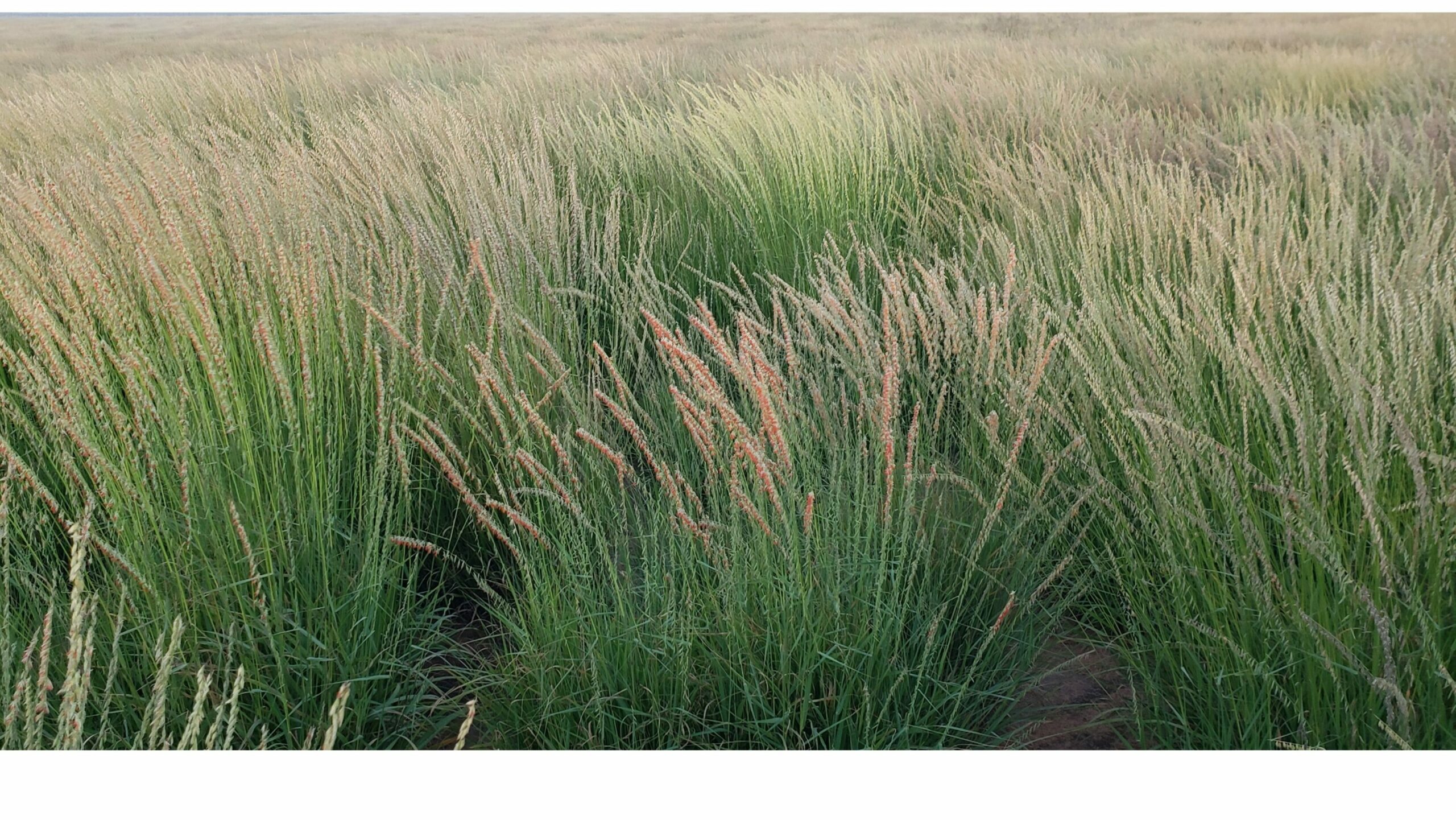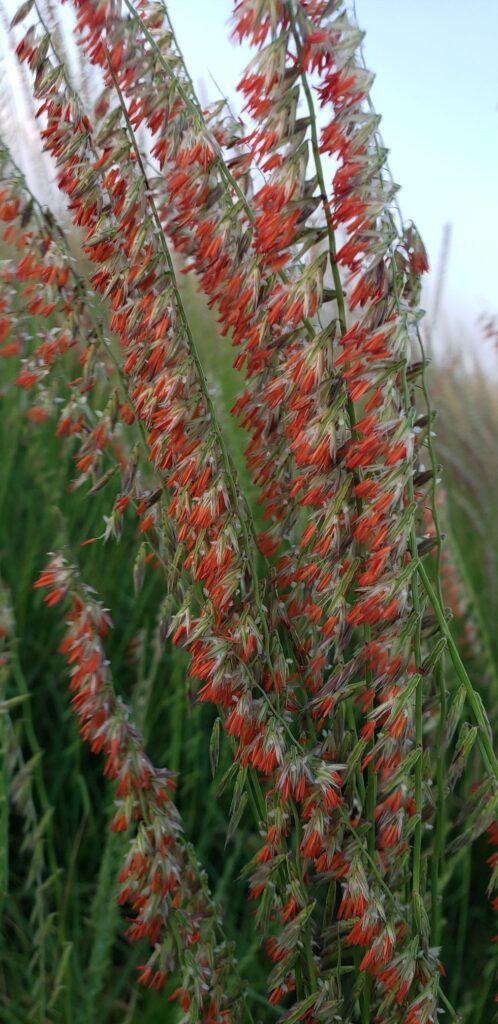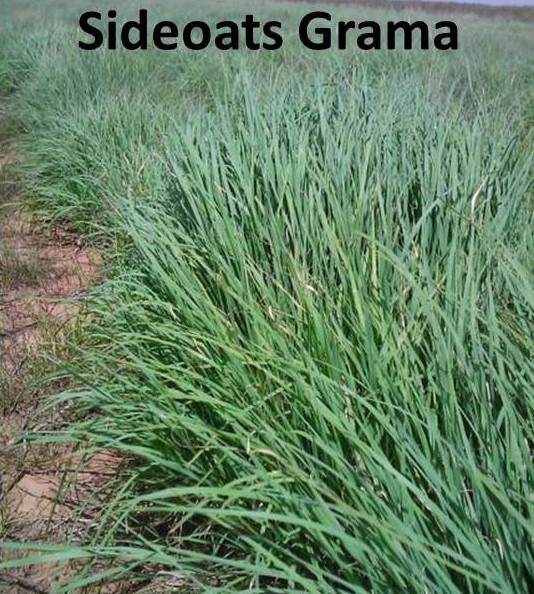Sideoats Grama
(Bouteloua curtipendula)

Sideoats grama is a long-lived, warm-season, native grass with an exceptionally wide, natural distribution throughout the United States. It is most abundant in the Great Plains. It has short, scaly rhizomes. Usually, it makes a bunch-type growth and can form a dense sod.
The flowering stalks are 2 to 3 feet tall. The leaves are about 10 to 12 inches long and nearly 1/4 inch wide. The seed-head consists of a large number of oat-like seeds set on one side of the stem, which is about 6 to 12 inches long. The root system is fairly deep and well-branched; thus the plants can effectively utilize all available moisture.
Sideoats grama produces an abundance of leafy forage, which is well-liked by all classes of livestock. Ordinarily, this species is seeded in mixtures with other adapted grasses. A seeding rate of 2 to 6 pounds an acre is generally recommended. The desirable rate depends upon the quality of seed and the other grasses, if any, used in the mixture.
Sideoats grama is considered excellent for conservation use. It produces a good volume of leafy forage and is adapted to a wide range of soil and climatic conditions. Seedling vigor is good, and failure to obtain a satisfactory stand seldom occurs if minimum care is used in seedbed preparation and planting.
Seedings should be made on a well-prepared, firm seedbed free from weeds.


General Characteristics
| Growth Type: | Bunch |
| Life Span: | Perennial |
| Growing Season: | Warm Season |
| Native/Introduced: | Native |
| Plant Height: | 2-3 feet |
| Cold Tolerance: | Good |
| Drought Tolerance: | Good |
| Salt Tolerance: | Fair |
| Soil Type: | Sandy Loam - Clay |
| Minimum Rainfall: | 14 inches |
| Planting Rate: | 2-6 pls# |
| Planting Date: | Dec. - June |
| Seed Type: | Chaffy |
| Uses: | Grazing, Wildlife Habitat, Erosion Control, Reclamation |
| Planting Depth: | 1/4" |
